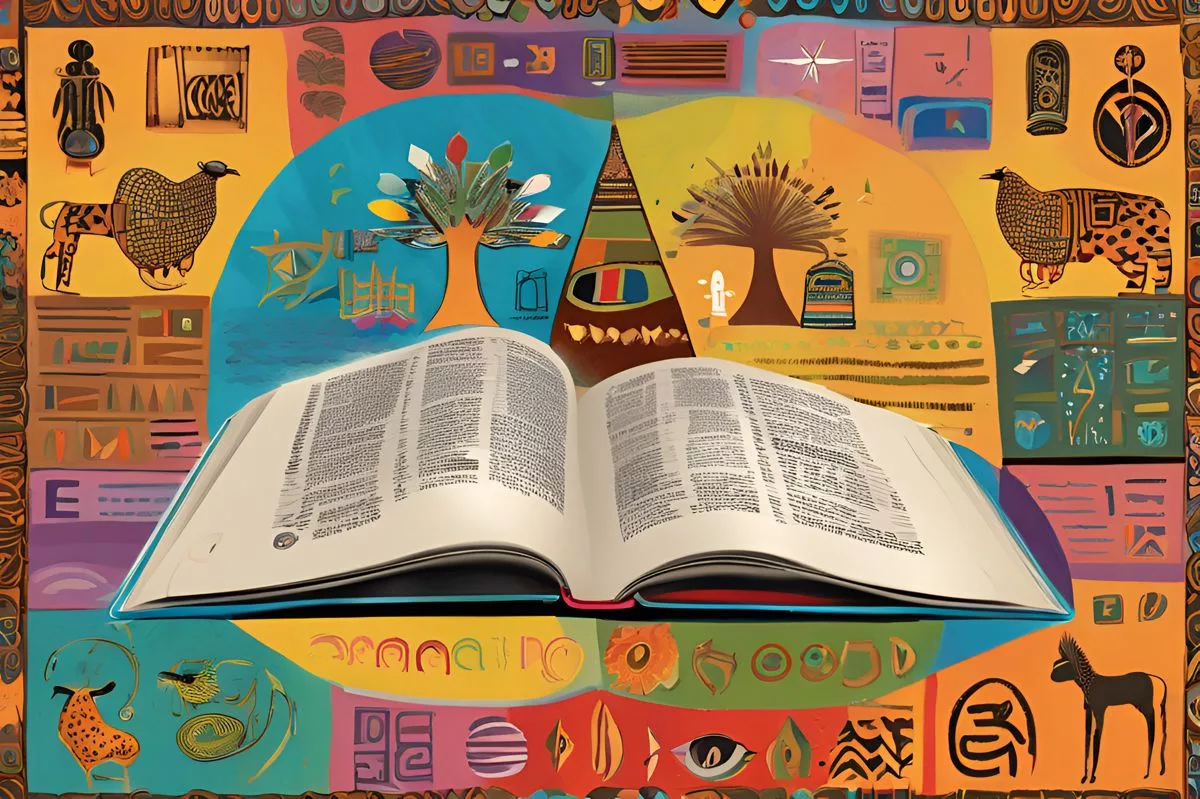The BELA Act, recently signed by President Ramaphosa, has stirred up a storm in South Africa. Critics worry it could harm mother-tongue education, especially for Afrikaans speakers, which is vital for preserving their cultural identity. Groups like AfriForum are raising alarms, fearing that the Act might lead to cultural loss. In response to the backlash, the President has paused some parts of the law to allow for more discussion. This ongoing debate highlights the importance of language and culture in shaping South Africa’s identity.
What is the BELA Act and its impact on cultural identity in South Africa?
The Basic Education Amendment Laws (BELA) Act, signed into law by President Ramaphosa, has sparked debate over its potential threat to mother-tongue education, crucial for cultural identity. Critics, including AfriForum and the Freedom Front Plus, argue it endangers Afrikaans and promotes cultural erosion.
In the complex landscape of South African politics, where history and culture intersect, the Basic Education Amendment Laws (BELA) Act has ignited a significant debate. This discussion involves major players like AfriForum, the Democratic Alliance (DA), and the Freedom Front Plus, each grappling with the implications for policy and cultural identity.
Signing the BELA Act Amidst Controversy
On September 13, President Cyril Ramaphosa signed the BELA Bill into law at the Union Buildings in Tshwane. This event, though ceremonious, sparked controversy and debate. Critics argue the Bill threatens mother-tongue education, a critical pillar of cultural identity and community cohesion. Among these critics, AfriForum stands out with a strong voice of dissent.
Kallie Kriel, CEO of AfriForum, has been particularly vocal against the BELA Act, expressing deep concerns for Afrikaans-speaking communities. Kriel fears the Act could endanger not only the language but the cultural fabric it supports. In South Africa, where language often intertwines with cultural identity, this legislation’s implications resonate deeply.
The Democratic Alliance and the Freedom Front Plus also share these concerns. As part of the Government of National Unity (GNU), they view the Bill as potentially destabilizing. Pieter Groenewald, leader of the Freedom Front Plus, criticized the Bill’s rapid passage, noting a lack of in-depth discussion on integrating electronic education systems—an oversight in the digital age.
Political Diplomacy and Delayed Implementation
In response to the uproar, President Ramaphosa displayed political acumen by delaying the implementation of contentious clauses 4 and 5. This decision reflects an effort to maintain GNU unity while addressing South Africa’s diverse needs. The three-month postponement allows for further dialogue and negotiation, emphasizing the role of discussion in democratic governance.
The BELA Act extends beyond educational policy, touching on broader themes of cultural preservation and national identity—recurring elements in South Africa’s post-apartheid journey. Language, as a cultural vessel, bears the history and heritage of its speakers. For Afrikaans communities, which often lack traditional cultural spaces, schools serve as critical hubs for identity preservation. This elevates the debate from mere policy to existential significance.
Historically, the struggle over language rights in South Africa mirrors broader sociopolitical challenges. The apartheid regime, with its linguistic hierarchies, left a legacy influencing current debates. The post-apartheid constitution, however, embraced multilingualism and cultural diversity as core principles, aiming to heal past divisions and promote inclusivity.
Repercussions for Cultural Identity and Political Dynamics
The BELA Act’s perceived threat to mother-tongue education has become a flashpoint in the quest for an inclusive national identity. Critics fear reducing Afrikaans’ role in education might erode the cultural foundations of its communities. Considering the intricate link between language and cultural continuity, this concern holds weight.
However, the narrative isn’t solely about opposition. It also presents opportunities for innovation and adaptation in education. As digital transformation progresses, integrating technology into language education could enrich and preserve linguistic diversity through modern methods.
The discourse surrounding the BELA Act prompts reflection on political entities’ roles in safeguarding cultural diversity. AfriForum’s call for the DA and Freedom Front Plus to reassess their positions in the GNU highlights the tension between political alliances and cultural advocacy. It raises critical questions about political parties’ responsibilities to their constituencies, especially concerning cultural matters.
Navigating Unity and Diversity Through Dialogue
Amid these discussions, negotiation and collaboration remain crucial. The delay in specific BELA Act clauses exemplifies dialogue’s power in resolving complex issues. Engaging diverse perspectives is key to crafting policies that honor South Africa’s rich tapestry of languages and cultures.
As South Africa faces these challenges, history offers lessons. Preserving cultural identity, though complex, can be achieved through collective effort and mutual respect. By embracing these principles, South Africa can balance unity and diversity, ensuring future generations inherit a legacy respecting both their past and potential.
“`markdown
What is the BELA Act and why is it controversial?
The Basic Education Amendment Laws (BELA) Act is a recent piece of legislation signed into law by President Cyril Ramaphosa. It has sparked controversy mainly due to concerns that it threatens mother-tongue education, particularly for Afrikaans speakers. Critics argue that this could lead to cultural erosion and loss of identity for Afrikaans-speaking communities.
Who are the main critics of the BELA Act?
Key critics include organizations like AfriForum and the Freedom Front Plus, as well as the Democratic Alliance (DA). They argue that the BELA Act may undermine Afrikaans language education and threaten the cultural fabric of affected communities. Kallie Kriel, CEO of AfriForum, has been particularly vocal about the potential risks posed by the Act.
What has President Ramaphosa done in response to the backlash?
In light of the controversy and public outcry, President Ramaphosa has paused the implementation of certain clauses of the BELA Act, specifically clauses 4 and 5, for a three-month period. This delay is intended to facilitate further discussion and negotiation regarding the law’s implications on education and cultural identity.
How does the BELA Act relate to broader cultural issues in South Africa?
The BELA Act raises significant questions about cultural preservation and national identity within South Africa. Language is a key element of cultural identity, and the Act’s potential threat to Afrikaans education highlights the intricate link between language and community cohesion. This debate taps into historical struggles over language rights in the country and the ongoing quest for inclusivity post-apartheid.
What are the potential implications of the BELA Act on Afrikaans communities?
Critics warn that reducing the role of Afrikaans in education could erode the cultural foundations of Afrikaans-speaking communities. Given the importance of mother-tongue education in maintaining cultural identity, this could have long-lasting effects on community cohesion and cultural continuity, particularly in a country with a history of linguistic hierarchies.
How can the debate surrounding the BELA Act lead to positive outcomes?
While the BELA Act has ignited controversy, it also presents opportunities for innovation in education. The integration of technology and modern teaching methods can enhance language education and preserve linguistic diversity. Engaging in open dialogue and collaboration among diverse political and cultural groups can help craft policies that honor South Africa’s rich cultural tapestry, fostering unity while respecting diversity.
“`












